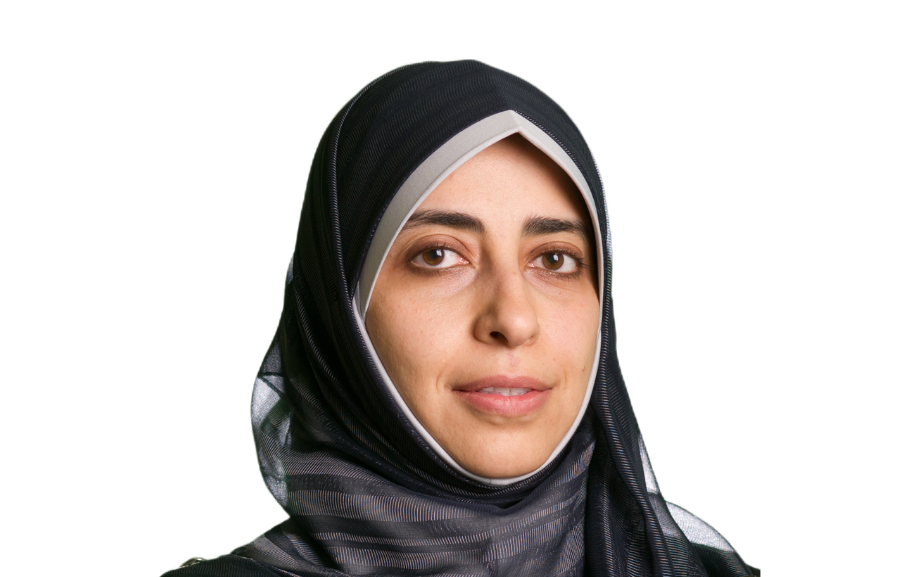Dr. Heba Kurdi

Biography:
Dr. Heba Kurdi is a Professor of Distributed Artificial Intelligence at King Saud University and a research fellow at MIT. She completed her PhD from Brunel University’s School of Engineering and Design (London, UK) in 2010, achieving the Shield of Distinguished Research from the Saudi Ambassador in the UK and Ireland.
Inspired by the wisdom of the honeybee colony, Dr. Kurdi developed a new computing environment, Personal Mobile Grids, and thus became the first Saudi female to receive a US patent in the area of Information and Communication Technologies. Inspirations from nature continued to guide Dr. Kurdi’s research, and she received her second US patent based on her Ibn Khaldun (IBK) Fellowship project, in which she designed an algorithm to mimic locusts' dynamic behaviour in drones, for the purpose of improving the efficiency of search-and-rescue missions after catastrophes.
Dr. Kurdi has dozens of journal and conference publications and received the Best Paper Award in London's 2012 Science and Technology Conference sponsored by Springer and IEEE. Dr. Kurdi works as a reviewer for several journals and is a Principal Investigator and project manager of several research projects. Her research interests include Bio-inspired Engineering, Multi-agent Systems, Distributed Systems and Mobile Computing.
From 2014 to 2017, Dr. Kurdi started as a research fellow for MIT's Department of Aeronautics and Astronautics (AeroAstro) in Professor Jonathan How’s Aerospace Controls Laboratory (ACL). She then joined Professor Kamal Yousef Toumi's lab in MIT's Department of Mechanical Engineering (MechE), with which she is still affiliated. During her stay at MIT, Dr. Kurdi also invested in managerial skills, achieving executive certificates in Management and Leadership and in Strategy and Innovation from the MIT Sloan School of Management, along with a Harvard Business School certificate in Human Resources Management.
Dr. Kurdi has been working in academia for over ten years, during which she took on various responsibilities and leadership roles, including being the Vice Chair of the Department of Computer Sciences, Vice Dean of the College of Computer and Information Sciences and Vice Dean of the Career and Entrepreneurship Centre. She is also a certified associate fellow of the UK's Higher Education Academy. From these different positions and rich experiences, she has cultivated strong academic, managerial and leadership skills, as well as a deep commitment to the betterment of academia. She was promoted to full professor in spring 2021.
MIT Fellowship Research Abstract:
Bio-inspired Approach for Multitask Allocation Problem in Unmanned Ariel Vehicles
Unmanned Aerial Vehicles (UAVs), which are aircrafts with no pilot on board, are increasingly attracting attention; they are capable of performing a wide range of missions that are considered dull and dangerous for humans. For instance, in emergency situations, such as natural disasters, finding and rescuing potential survivors can be carried out by a group of autonomous UAVs, which cooperate with each other in the destroyed environment that manned vehicles and humans cannot reach or have difficulty reaching.
With the growing focus on multi-UAV, multi-UAV task allocation (MUTA) is attracting a significant attention. Actually, in the field of Search and Rescue (SAR) missions of UAVs, the main challenge facing researchers is to decide how to best allocate multi-UAV between rescue and search tasks to fulfil the urgent need of finding and rescuing people within a certain time frame. This problem increases in complexity as the numbers of UAVS and tasks increase and it is classified among NP-hard problems.
Dr. Kurdi worked with Professor Jonathon How, from the Aeronautics and Astronautics Department, to develop bio-inspired techniques that enable multi-UAV systems to act autonomously and execute SAR missions within predefined time constraints.
Publications based on Ibn Khaldun Fellowship Research
Patents
- H. Kurdi, J. How, “Dynamic Task Allocation in an Autonomous Multi-UAV Mission,” patent- United States Patent and Trademark Office, US 10203701 B2; Feb 12, 2019 . https://patentscope.wipo.int/search/en/detail.jsf?docId=WO2017079623
- H. A. Kurdi, M. Y. Abdulghani, 'Baggage Handling and Delivery System', US 16/216.860, projected publication date:11 June 2020.
Journal Articles
- Heba Kurdi, Shiroq Al-Megren, Ebtesam Aloboud, Abeer Alnuaim, Hessah Alomair, Reem Alothman, Alhanouf Ben Muhayya, Noura Alharbi, Manal Alenzi, Kamal Youcef-Toumi, “Bee-inspired Task Allocation Algorithm for Multi-UAV Search and Rescue Missions,” International Journal of Bio-Inspired Computation (ISI journal -Q1), (accepted).
- Heba Kurdi, Munierah F. AlDaood, Shiroq Al-Megren, Ebtesam Aloboud, Abdulrahman S. Aldawood, Kamal Youcef-Toumi, “Adaptive task allocation for multi-UAV systems based on bacteria foraging behavior," Applied Soft Computing (ISI journal -Q1). https://www.sciencedirect.com/science/article/pii/S1568494619304235
- Heba A. Kurdi, Ebtesam Aloboud, Maram Alalwan, Sarah Alhassan, Ebtehal Alotaibi, Guillermo Bautista, Jonathan P. How, ”Autonomous Task Allocation for Multi-UAV Systems Based on the Locust Elastic Behavior,”Applied Soft Computing (ISI journal -Q1), Volume 71, October 2018, Pages 110-126. ISSN 1568-4946. https://www.sciencedirect.com/science/article/pii/S1568494618303296?via%3Dihub
- Heba Kurdi, Fadwa Ezzat, Lina Altoaimy, Syed Hassan Ahmed, Kamal Youcef-Toumi, “MultiCuckoo: Multi-Cloud Service Composition using a Cuckoo-Inspired Algorithm for the Internet of Things Applications,” IEEE Access (ISI journal -Q1), Volume 6, pp. 56737 – 56749, 2018 https://www.sciencedirect.com/science/article/pii/S1877050918318039?via%3Dihub
Conferences
- H. Kurdi, J. How, G. Bautista, “Bio-Inspired Algorithm for Task Allocation in Multi-UAV Search and Rescue Missions,” in Proc. of AIAA Guidance, Navigation, and Control Conference, (ISI Conference Proceedings), 4-8 January 2016, San Diego, https://arc.aiaa.org/doi/pdf/10.2514/6.2016-1377
- Shiroq Al-Megren, Heba Kurdi, Munirah F.Aldaood, “A Multi-UAV Task Allocation Algorithm Combatting Red Palm Weevil Infestation,” Procedia Computer Science 141 (2018): 88-95.
Fellowship Sponsored By:
Saudi Aramco